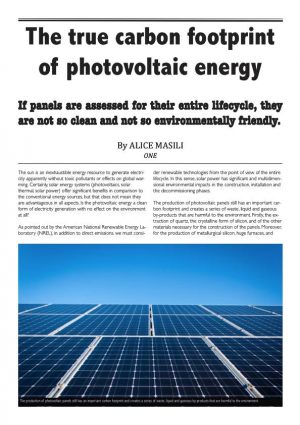A new peer reviewed study on surface warming and the solar cycle found that times of high solar activity are on average 0 2 c warmer than times of low solar activity and that there is a polar amplification of the warming.
Does solar panels increase global warming.
The aim of this paper is then to evaluate the impact of solar panels known to be good for global warming mitigation on the local climate especially the uhi.
The net impact of these panels have actually increased the carbon dioxide emissions in the air because of the energy used in their construction.
Over the same period global temperature has risen markedly.
However emissions are released during the manufacturing materials transportation installation maintenance decommissioning and dismantling of the solar energy systems.
Solar panels do not release any emissions as they generate electricity.
Solar panels don t contribute to global warming because while they do absorb energy from light they also reflect a lot of light back out into the atmosphere.
Solar panels into the urban canopy model teb.
As the study reveals probably not.
It is therefore extremely unlikely that the sun has caused the observed global temperature warming trend over the past half century.
Solar cycles cause global warming.
Solar panels do not contaminate the main drawback from using fossil fuels as a source of energy is that to generate electricity we need to burn them which leads to high carbon dioxide emissions that contaminate our planet and accelerate climate change.
The amount of solar energy that earth receives has followed the sun s natural 11 year cycle of small ups and downs with no net increase since the 1950s.
Large solar installations affect global and regional climate by taking solar radiation and distributing it in a different manner than natural processes.
This is a big contrast with.
It turns out that solar power doesn t help offset increased global warming caused by fossil fuels if anything it s making it worse.






























